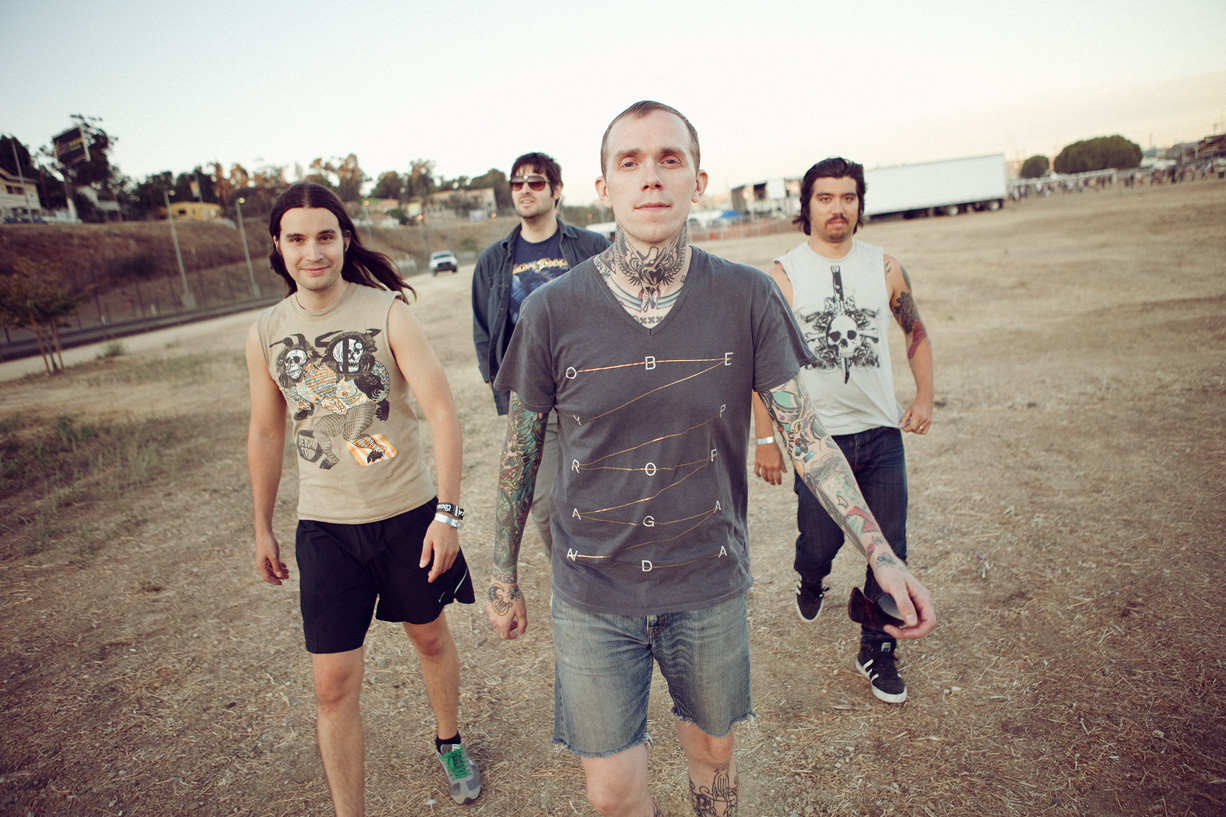And if the music itself doesn’t provide a challenge, throw in the videos, like the one for the title track to Axe to Fall: a black-and-white Clockwork Orange / The Ring video salad of torture and sex and massive amounts of electrical equipment (which I personally don’t think is following code), all culminating somehow in the birth of the ugliest mermaid in the world. The creature that slithers away at the end of the video is what would have happened at the end of The Fly if Jeff Goldblum was replaced with Moby and the fly with a crate of power cords. So there’s that; do with it what you will.
Even at the top of the metal-core mountain, to make anything resembling a living is a challenge. “I don’t make a career out of it still,” Bannon laughs, when asked to explain when he first realized he might make a “career” of Converge.
“I still work plenty of jobs, all affiliated with the music world or punk rock in some way, but…I think that’s one of the things that people invent in their head—that because you have some sort of visibility, that you must be financially successful.”
When we spoke, Converge was driving its van, pulling its trailer-full of equipment south on I-95 to its next gig. The band was in the middle of a package tour with Mastodon, High On Fire, and Dethklok, and Bannon says that part of what made it say yes to the idea was that “every night [is like] playing for a few thousand people, and maybe two hundred of ‘em know who we are. That’s a challenge. You go out there, and you make ‘em hate you or love you.”
The band adheres to a famously punishing schedule, but Bannon balks when asked to name the source of an amazing work ethic, or even to admit to having an amazing work ethic. “We just do what needs to be done; we’re not doing anything superhuman,” he says. “Touring is hard work. Being in a band is hard work.”
The insistence on the ordinary — resistance to accepting some otherworldly quality tacked on from the outside — is part of what brought Bannon to hardcore to begin with. “Hardcore punk was the first music community where the people on stage looked like me,” he says.
“They looked like normal people. They didn’t look like rock stars. There wasn’t decoration. It was just some dudes in jeans and a T-shirt, playing music as hard as they could.”
In its live performances, Converge maintains that ordinary-man demeanor he’s talking about. Yes, there’s a certain amount of bad-ass-ery that it projects, but it does so not through theatrics, lighting, and grandstanding but instead through confrontation, stripping away distance between artist and audience, and literally landing right on the crowd, leaving them with its sweat and blood.
So in a way, it’s true: its members are clearly not some separate species; they do look human up there. They’re brave, committed, and skilled, but they’re not magical, and this lack of artifice is the ultimate challenge to the audience.
You really could do what they’re doing, but can you put in the work? Because what separates me from, for example, Ben Koller, is simple commitment — about 20 years of hard work on the drums. It’s easy to use the excuse that I’m me, and they’re rock stars, but they remove that excuse. So what do you want to do?

